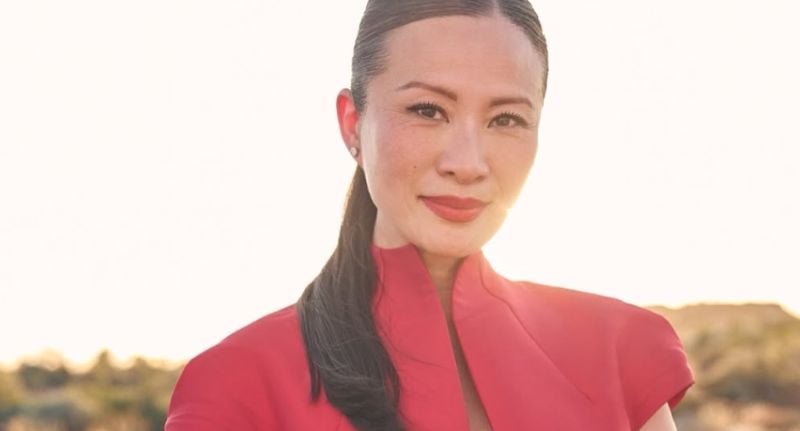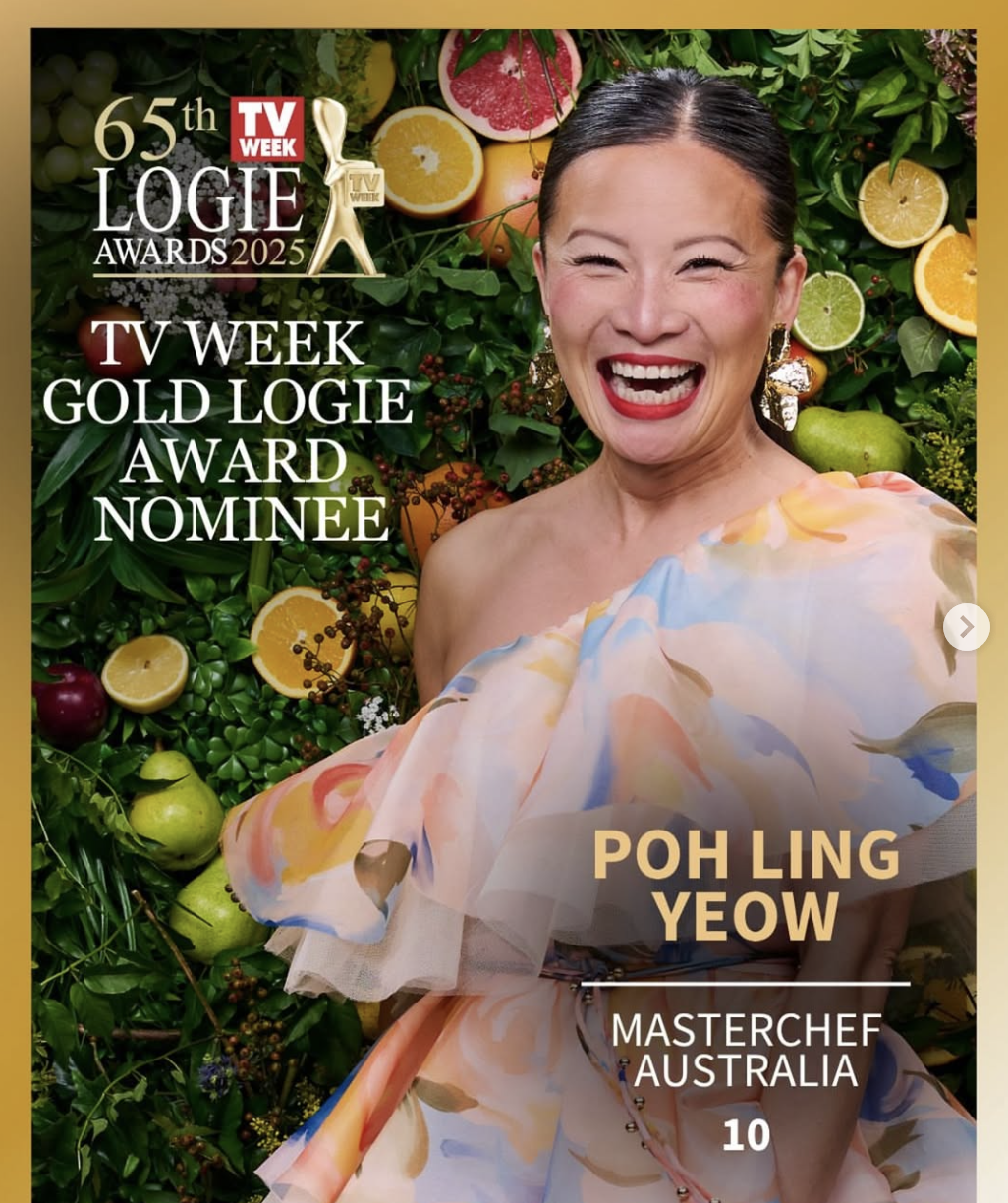She might be known as one of Australia’s most recognisable cooks, but Poh Ling Yeow didn’t enter the food world with a stash of secret family recipes or years of restaurant experience under her belt.
In fact, when she first appeared on MasterChef Australia back in 2009, she could barely cook.
“I was actually a really average cook when I entered the comp,” she said. “I was mainly a baker, so I was learning on the job, reading up recipes and creating on the go.”
That kind of honesty, paired with an unmistakable warmth and eccentricity, has kept Poh in the public eye for over 15 years. She’s now a published author, artist, TV presenter, and a surprise contender for the 2025 Gold Logie.
It’s a nomination she tells Mediaweek she never saw coming, especially given how her food story began.

Poh alongside the 2009 MasterChef Australia winner Julie Goodwin
Cooking as a form of cultural memory
Born in Malaysia and raised in Adelaide, Poh’s connection to food wasn’t initially about technique or tradition, it was about trying to remember where she came from.
“So much of the food in Malaysia is street food, and that hawker vendor has been cooking that one dish for their whole lives as it’s been handed down to them from generations before,” she explained.
But for Poh, those dishes weren’t passed down directly. Instead, she had to rely on taste memories, what she calls “palate memory”, to recreate meals she grew up with.
“But I had to cook so much from a palate memory because I hadn’t really put my time and energy into learning any of the dishes,” she says. “So, one of the reasons why I actually entered MasterChef is because food became the main point of connection for me to reclaim my culture.”
In her thirties at the time, Poh admitted she was at a cultural crossroads. “There were so many things I had shed trying to assimilate, and I finally got there and then I found myself in this position of being 35 and just having nothing to really try to nurture that was part of my culture. So food became that thing, and MasterChef was like a massive catalyst for me in that regard.”

Poh Ling Yeow
The complexity of cuisine
Poh lights up when she talks about Malaysian cuisine, though she’s quick to admit it rarely makes it into her weekly rotation.
“The thing is with Malaysian food is that it is a combination of three cultures,” she explains. “There’s Chinese, Malaysian, Malay, and Indian because the Chinese and Indians have lived there for so long that they’ve legitimately fused. And so the food is very much that. So it’s kind of a cuisine that’s multiplied by three. So it’s very complex and very nuanced at the same time.”
Yet, for all her pride in the food of her heritage, Poh doesn’t often cook it. “In the scheme of things, I feel I am such a crap cultural ambassador in some ways,” she laughs. “I’m a really curious cook, and because I’m Australian, I do cook across lots of cultures during the week, but it’s actually rare for me to cook Malaysian.”
“I mainly cook Chinese. I cook a lot of Italian, and I cook a lot of French”.
Even simple dishes from her childhood proved harder than they looked. “There are so many things that my mum described to me that I thought would be easy to make. Like I tried making a simple Sambal (a popular chilli-based sauce) that she used to make for me all the time when she was alive,” Poh recalls. “And I remember thinking, why is this not working? It is just chillies, onion, galangal, water, sugar, salt. Why is this not working? Right? Yeah. And the thing that she forgot to tell me was that she added a little splash of water at the end.”
The pressure to perform and the lesson of authenticity
Poh’s journey on MasterChef didn’t just teach her to cook, it also taught her how to stop hiding parts of herself. In her first audition, she made what she now calls a “terrible French Nouvelle dish.”
“I was tossing between doing a cultural dish or something that showed that I was, in inverted commas, sophisticated. And then when I cooked it, the judges asked me ‘why didn’t you cook a cultural dish?’ and I was like, ‘damn it!'”
She got a second chance, and a clear message. “From that point on, I knew they wanted to see authenticity. They want to see something that I grew up with. It sent a very strong signal for me to keep going in that direction. And it was very much part of my food journey at the time because I wanted to reconnect with my culture.”
Even so, she was figuring it out on the fly. “On MasterChef, I was learning on the job. I was just reading up recipes and creating on the go because so much of Malaysian food is knowing how to balance it again and bring everything together.”
“I learned all that kind of the hard way and screwed up a lot on the show. because I had no idea what I was doing, and I couldn’t stand next to my mum and watch her making the dish,” she explained.

Visibility, validation and the power of seeing yourself
Now, more than a decade after first appearing on Australian screens, Poh’s presence has shifted from novelty to necessity. She’s not just a cook or a contestant; she’s part of the cultural landscape, and she knows how much that matters.
“I never used to think about it, but the older I get, the more I’m aware of how much I’m actually still drawn to content that has people that look like me in it,” she reflects. “I still need that point of belonging to a tribe or having someone that looks like me to aspire to. I think when I was younger, there were so few.”
That’s what makes her 2025 Gold Logie nomination feel more meaningful than most accolades. For Poh, it’s not about being the best or most polished, it’s about being seen, flaws and all, and showing others that there’s space for stories like hers.
You can vote for Poh to win the Gold Logie here.
